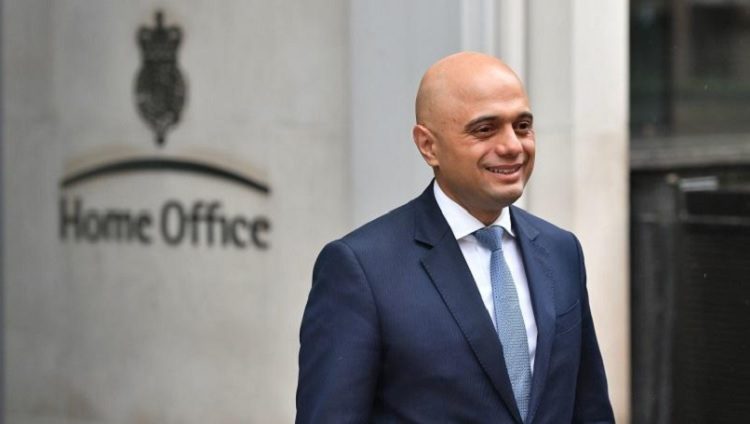Ben Kerrigan-
New Year’s Eve plans in England have been given the green light, as Health Secretary Sajid Javid confirmed the government will not be imposing any further restrictions before the New Year.
The health secretary called for caution when taking part in New Year’s celebrations, and urged people to take a lateral flow test before attending events.
Mr Javid left open the possibility of further measures being taken in January, adding that the government “will see” whether the data suggests they are needed.
The decision comes as latest figures revealed a record number of new infection cases on Christmas Day.
Limiting the spread of infections is important, but more crucial is the level of hospitalizations and deaths caused by Covid-19.
Mr Javid said: “Of course we look at the data on a daily basis, that hasn’t changed over the Christmas period, but there will be no further measures before the New Year.”We won’t be taking any further measures. Of course, people should remain cautious as we approach New Year’s celebrations, and you know, take a lateral flow test if that makes sense.
“And when we get into the New Year, of course, we will see then whether we do need to take any further measures – but nothing more until then at least.”
Mr Javid said while “there is still a lot of uncertainty” around Omicron – which it is believed makes up “some 90% of cases” across England at present – there has been positive news in recent days that the variant is milder.
“Now, that in itself is not good new enough – that is good news, but we know that it spreads very rapidly, so we have to set that news against that – but, whilst we should all absolutely remain cautious, we don’t think there is any need for any new measures until the New Year.
“But, of course, we will keep that under review.”
The announcement comes after a week of social and political turmoil, following Boris Johnson’s announcement for covid passports to enter night clubs 24 hours after leaks of parties in Downing Street last year, sparking plenty of anger among members of the public, who have practically become fed up with restrictions after restrictions.
Asked why the Scottish and Welsh governments and Northern Ireland executive have analyzed the same data and introduced more measures, the health secretary reiterated that it is for each government to make their own decisions.
Mr Javid added that England is “very, very focused on vaccinations” but that the government “will watch carefully what is happening in the hospitals”.
“Wee will watch the situation very carefully and should in the future we need to act, of course we won’t hesitate to do so,” he said.
The announcement comes after Prime Minister Boris Johnson met with England’s chief medical officer Chris Whitty and chief scientific adviser Sir Patrick Vallance on Monday to discuss the latest coronavirus data.
There were 113,628 infections confirmed on 25 December after a rush to get tested in the days prior, the latest data shows.
It has also been revealed that there were 103,558 on Boxing Day, and 98,515 in the last 24-hour period.
Meanwhile, the number of people in hospital with COVID-19 in England is at its highest level since March, new figures from NHS England reveal, with 8,474 hospitalised as of 8am today.
This is up 27% from a week earlier and is the highest number since 5 March, when the country was under tough lockdown restrictions.
Separately, Scotland has recorded the highest number of daily COVID-19 cases since the start of the pandemic, early data suggests.
Scotland reported 8,252 cases on Christmas day, 11,030 cases on Boxing Day and 10,562 cases on 27 December.
Chief executive of NHS Providers Chris Hopson told Sky News earlier on Monday that there are some early positive signs that this wave will not be as bad as last January, which saw the country plunged into lockdown.
“[Hospitals are] not seeing the numbers of older people who’ve got real respiratory problems, needing critical care, needing very large amounts of oxygen support,” he said.
“We’re just not seeing those numbers at this point that we saw in January 2021.”
England is currently following Plan B, which includes guidance to work from home, mask-wearing in shops and other public settings and COVID-19 passes are needed to gain entry to some large events.
However, there will be growing pressure on the prime minister to introduce restrictions if the figures show rising infections may add pressure on the NHS to the point of overwhelming it
The decision to postpone the decision to introduce any further measures into 2022 means it is likely Parliament will not be recalled early from Christmas recess.
Nightclub closures are among new measures being introduced in Wales, Scotland and Northern Ireland to tackle the spread of the Omicron variant of COVID-19.




